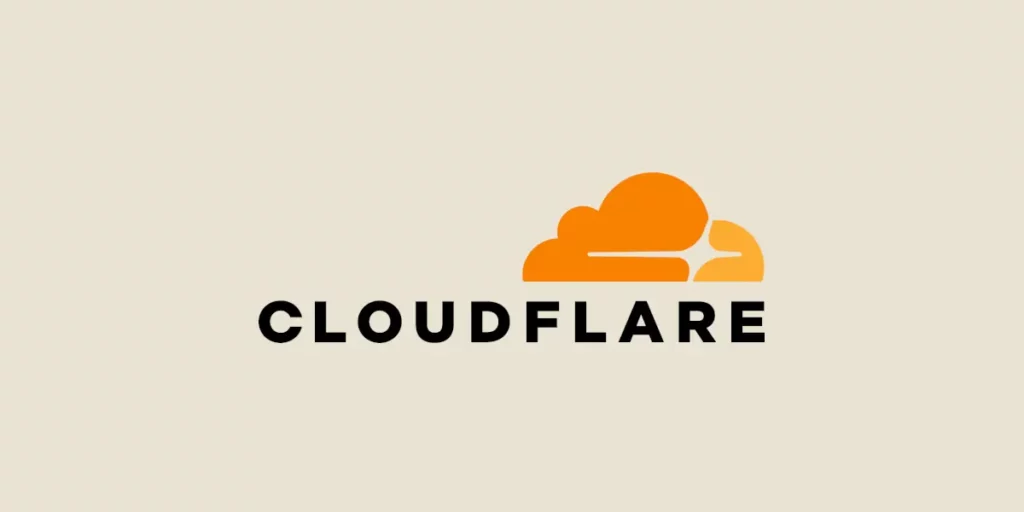Cloudflare specializes in cybersecurity for online services, helping millions of websites shield themselves from attacks via its global network of Data Centers. Explore all you need to know about this company, its diverse solutions, and how to master them!
As businesses increasingly depend on digital infrastructures, the threat posed by hackers intensifies daily. This is why cybersecurity has become a major concern. Ensuring the protection of websites while maintaining optimal performance is critical to preserving user trust and ensuring business continuity. Founded in 2009, one company has established itself as a leader in this field by offering comprehensive security and optimization solutions: Cloudflare.
What is Cloudflare?
In 2009, Matthew Prince, Lee Holloway, and Michelle Zatlyn founded Cloudflare with a mission: to democratize the security and performance of websites.
The company evolved quickly from a simple spam protection service to a full-fledged ecosystem providing security, optimization, and infrastructure solutions for websites.
In just a few years, Cloudflare has become one of the leaders in the sector, drawing the attention of small businesses and large international corporations. Notable milestones in its history include the launch of its DDoS protection service in 2010, the creation of its own content delivery network (CDN) in 2012, and the rollout of its DNS 1.1.1.1 service in 2019.
The latter significantly contributed to improving the confidentiality and speed of DNS requests for users globally. By 2019, the company went public, solidifying its stronghold in the IT space.
How does it work?
Functioning as an intermediary between users and content servers, Cloudflare acts as a “reverse proxy”. When a visitor attempts to access a Cloudflare-protected website, the request first passes through its network, which analyzes and filters the traffic before redirecting it to the original server. This process blocks potential threats, like DDoS attacks or SQL injection attempts, while optimizing content delivery.

Cloudflare’s network consists of over 250 Data Centers spread across the globe, reducing latency by optimally routing requests. It is a distributed network that caches static content from websites to deliver it faster to users, regardless of their geographical location.
This architecture contributes to the security, availability, and speed of websites, while providing management and customization tools!
A shield against DDoS attacks
One of Cloudflare’s cornerstones is protection against distributed denial-of-service (DDoS) attacks. These attacks aim to make a site or online service unavailable by overwhelming its servers with malicious traffic, potentially paralyzing a company within minutes.
Fortunately, Cloudflare has an advanced detection and mitigation system capable of absorbing and neutralizing such traffic. Its global network, with a capacity of several tens of terabits per second, redirects malicious traffic to specific data centers for analysis and filtering. Legitimate requests can access the site without interruption, ensuring maximal availability.
Cloudflare’s ability to counter even the most significant offensives has earned the trust of enterprises of all sizes to safeguard their digital assets against such threats.
The WAF, or web application firewall
To combat threats specifically targeting web applications, Cloudflare’s web application firewall (WAF) provides crucial protection. It deflects SQL injections, cross-site scripting (XSS), and zero-day attacks by analyzing each request to a site and applying predefined rules.
This process allows for the detection and blocking of suspicious behaviors. Users can customize WAF rules based on their site’s specific needs, such as creating exceptions for behaviors deemed legitimate.
With constantly updated security rules, the WAF effectively defends against emerging threats.
A performance optimizer
Besides cybersecurity, Cloudflare excels at optimizing website performance. Through advanced caching techniques, it stores static elements like images, CSS, and JavaScript files in its Data Centers globally.
This reduces page load times by serving these contents from the server closest to the end user. Additionally, technologies like Brotli compression, link preloading, and automatic image optimization help shrink file sizes and further speed up page loads.

All these optimizations contribute not only to a better user experience but also to improved Core Web Vitals scores, essential for ranking higher on search engines.
A fast and secure DNS
With some of the shortest response times in the world, Cloudflare’s DNS service allows sites to load faster and enhances overall reliability. Additionally, it includes protection against DNS attacks and offers advanced features like automatic redundancy configuration and granular DNS record management.
The public DNS resolver 1.1.1.1 is also noted for its privacy and performance, encrypting requests to protect users against eavesdropping and malicious manipulations while reducing website load times.
Solid data protection
Securing data in transit is a crucial issue for businesses. However, Cloudflare provides simplified management of SSL/TLS certificates, facilitating the protection of communications between users and web servers.
Users can select from various security levels, such as Full SSL and Full SSL (strict), based on their requirements, with additional features like TLS 1.3, OCSP stapling, and custom certificate support. These ensure optimal data protection while maintaining high performance.
Cloudflare Workers: the serverless computing platform
For executing JavaScript scripts at the network’s edge, directly in Cloudflare’s Data Centers, developers can use the Cloudflare Workers serverless computing platform. This allows code to be run as close as possible to the user, to reduce latency and enhance application responsiveness.
With numerous use cases, like dynamic redirections, API request management, and HTTP header modifications, Cloudflare Workers lets developers quickly deploy customized features without managing infrastructure, simplifying the development of modern and resilient applications.
A wide range of advanced services
Beyond the core features described earlier, Cloudflare provides numerous advanced services. Here’s an overview: The smart routing service Argo Smart Routing optimizes the path requests take to reach origin servers.
Utilizing sophisticated algorithms and real-time data, it identifies the fastest and most reliable path for each request, minimizing latency. This service is particularly beneficial for companies operating globally, where even a slight improvement in response times can enhance user experience and increase conversion rates.
Analyses show that using Argo can reduce load times by more than 30% on average!

Meanwhile, the security solution Cloudflare Access controls access to internal applications without the need for traditional VPNs. With a Zero Trust security model, it verifies each user’s identity and evaluates request context before granting access.
This approach reduces unauthorized access risks and simplifies access management for businesses. Administrators can define access rules based on criteria such as identity, geolocation, and device status.
Additionally, Magic Transit is a DDoS protection and routing solution for network infrastructures, aimed at companies with their own IP networks. This service safeguards networks against volumetric attacks and optimizes traffic routing.
Combining Cloudflare’s powerful DDoS protection with advanced routing and tunneling capabilities, Magic Transit offers comprehensive network security and ensures availability. Also noteworthy is Cloudflare R2, an object storage solution designed to provide a scalable and cost-effective alternative to traditional storage options like Amazon S3.
By eliminating data egress fees, R2 allows businesses to store and access their data more flexibly and cost-effectively. For companies looking to store large data volumes without breaking the bank, it’s an appealing choice.
Well integrated with other Cloudflare services, it simplifies creating full-fledged and efficient serverless architectures. All these advanced services make Cloudflare much more than just a CDN or security provider; they offer innovative and versatile solutions to tackle modern technological challenges.
What are the benefits for businesses?
A primary benefit of Cloudflare is the reduction of infrastructure costs. Thanks to its content delivery network (CDN) and caching mechanisms, it significantly cuts down on bandwidth usage.
By locally storing the static elements of sites (images, videos, CSS/JavaScript files), traffic directed to the origin servers is reduced, drastically lowering data consumption costs. Services like Cloudflare R2 also eliminate often costly data egress fees associated with traditional storage solutions.
Businesses can thus save operational costs while enjoying efficient and scalable infrastructure. Moreover, centralizing security services offers end-to-end protection without the need for multiple third-party solutions.
The WAF, DDoS protection system, and SSL/TLS certificate management deliver comprehensive and integrated security.
For organizations subject to stringent regulatory requirements such as GDPR or SOC 2, Cloudflare also provides tools and configurations to ensure compliance. This is achieved through Cloudflare Access and Zero Trust, which allow precise control over who can access applications and sensitive data, reducing the risk of data breaches or unauthorized access.

Alongside cost savings and security, another key concern for businesses is user satisfaction with a website, directly impacted by user experience and, therefore, performance. Here, Cloudflare is an invaluable asset, providing a fast and seamless experience and reducing page load times through caching, smart routing, and resource optimization.
Technologies like link preloading, Brotli file compression, and automatic image optimization further bolster site performance. As a result, users enjoy smoother navigation, leading to increased time on site, lower bounce rates, and ultimately, greater satisfaction!
Cloudflare, an invaluable asset to protect your websites
With its comprehensive and integrated solution for protecting and accelerating websites, Cloudflare has established itself as one of the leaders in web security and optimization. It caters to organizations of all sizes, but exacting its full potential does come with challenges. To fully leverage its power, training is essential.
To master the Cloudflare ecosystem’s tools, consider DataScientest. Our diverse training programs will enable you to become an expert in Cloud technology or cybersecurity, thanks to a hands-on, practical pedagogy.
Explore the different services of major cloud platforms like AWS and Microsoft Azure, and learn the best software and cybersecurity techniques to safeguard not only websites but also computer systems and networks. All our courses are available remotely in BootCamp, continuous, or alternated formats, and our organization qualifies for funding through CPF or France Travail. Quickly discover DataScientest!
You now know everything about Cloudflare. For further information on similar topics, explore our article on AWS and our article on Microsoft Azure!










